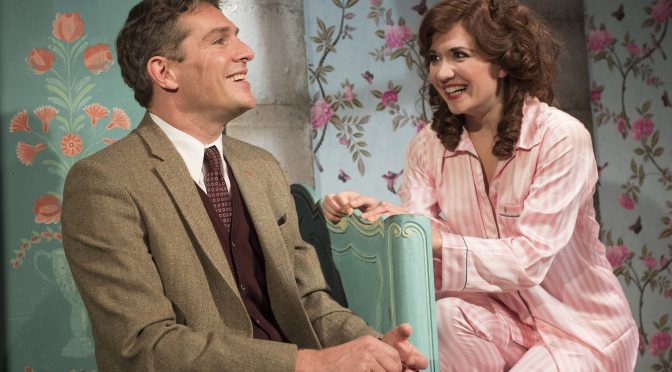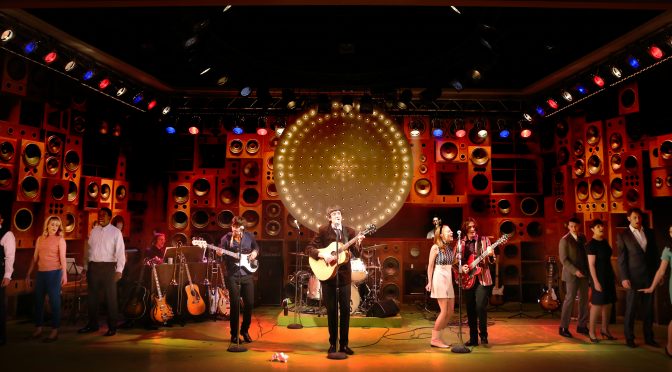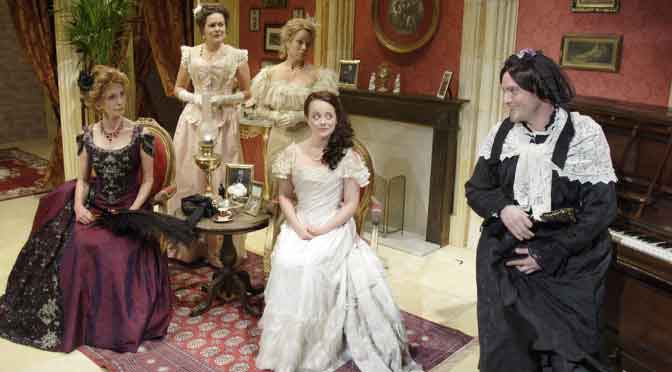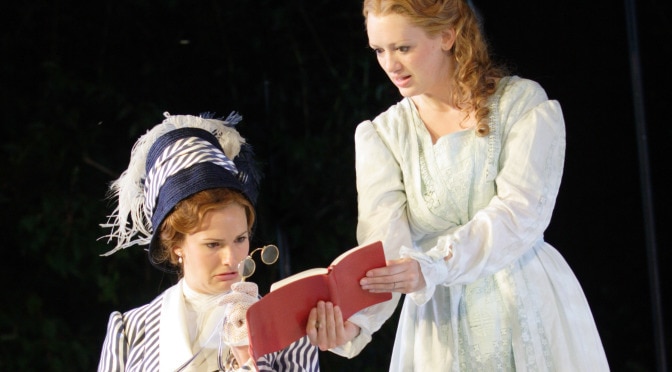Here’s a real treat for loyal fans of David Babani’s London Bridge venue. The ‘musical lovers’ musical’, by Sheldon Harnick and Jerry Bock, is perfect fare for the Menier, ticking every box with gorgeous songs and great lyrics. And this fine production does the musical masterpiece full justice.
Joe Masteroff’s book is one of many adaptations of Miklós László’s play about two lonely-heart letter writers, Georg and Amalia, who are in love while unaware that they work together in a posh perfumery. It’s a delicious, fun-filled scenario, given weight by the performances of Mark Umbers and Scarlett Strallen. The couple’s delivery of each song is spot on. And each song is wonderful.
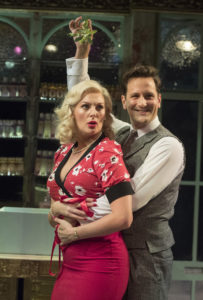
There’s a second love story, too: the romantic adventures of Ilona, betrayed by her colleague, the womanising Kodaly. What could be a sub plot stands proudly alongside the leads because of Katherine Kingsley and Dominic Tighe’s performances. And a third affair: the melancholy discovery of the shop’s owner, played by Les Dennis, that his wife is betraying him.
For every sentimental element in this musical, the trials of the characters make you feel this is a grown-up affair. The careful age distribution adds to the effect – Umbers does well to show us George as a middle-aged man. As with Amalia’s letters, everyone becomes a ‘dear friend’, their lives, loves and ambitions so perfectly encapsulated in the songs.
Director Matthew White does an impeccable job. Superb cameos from shop clerk Sipos (Alastair Brookshaw) and Cory English’s maître d’ show his level of attention and care. His decision to have strong British accents seems an unnecessary complication. There’s no reason for Georg and Amalia to sound like something from Brief Encounter. The only role that benefits is Ilona – turned into a northern blonde bombshell that makes Kingsley irresistible. A minor quibble for a production that deserves applause even for the set – brilliant work from Paul Farnsworth. And if some scenes seem cramped, it’s only more proof that the production deserves a bigger venue. She Loves Me is increasingly recognised as a major work. What a present a transfer of this great show would be.
Until 4 March 2017
www.menierchocolatefactory.com
Photos by Alastair Muir
Norman Pace will take over from Cory English between 10 January – 6 February.

